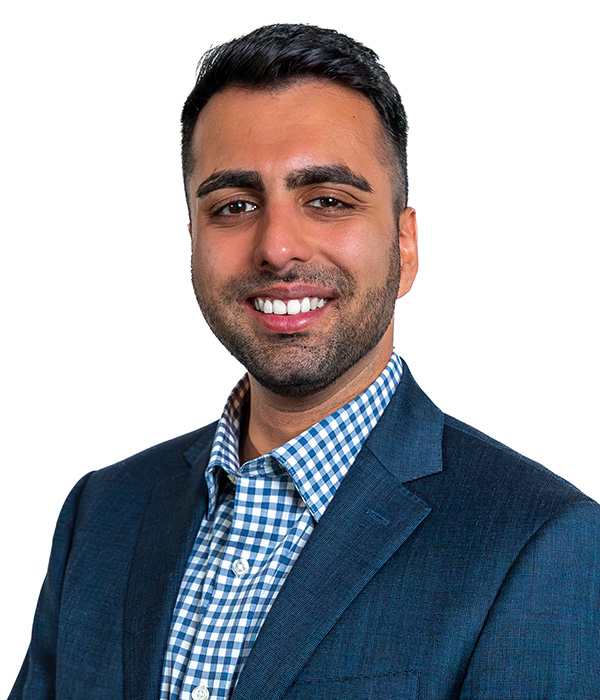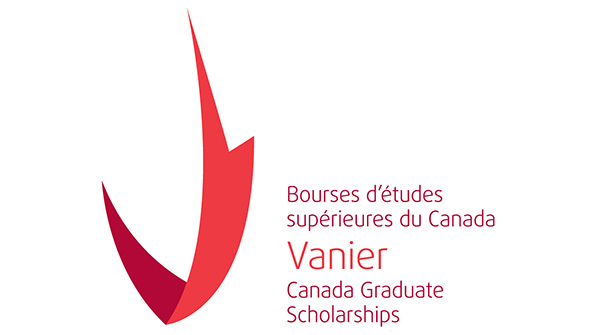 About being a Vanier Scholar
About being a Vanier Scholar
What does receiving a Vanier Scholarship mean to you?
Receiving a Vanier Scholarship is an incredible honour and the hallmark of my doctoral training journey thus far. I am thrilled and deeply gratified to have my academic, research and leadership contributions recognized at the highest level of graduate funding in Canada.
The scholarship is an embodiment of the wonderful opportunities, mentors, and collaborations I have benefitted from throughout my training. It reflects the tremendous and undying support I have received from my wife, parents, sister, extended family and friends. Most importantly, it serves as a platform to drive innovations in evidence synthesis and guideline development; to advocate for inclusivity and equity within medicine, research and in society at large; and to motivate and mentor future generations of researchers.
Tell us about your Vanier research.
Diabetes affects half a billion people worldwide, is the ninth leading cause of death internationally, and is associated with multi-organ morbidity. Whereas clinicians and patients have historically focused on glucose-lowering effects of medications, new therapies with significant cardiovascular and kidney-related benefits have changed this treatment paradigm over the past decade.
Clinicians and patients require dynamically updated evidence summaries and trustworthy guidance to inform their decision-making when choosing between available therapies. The proposed research is a ‘living’ guideline on drug therapies for adults with type 2 diabetes. The guideline will incorporate best available evidence regarding benefits and harms of therapies, variable prognoses (i.e. risk of cardiovascular and kidney complications) across patients, and the values and preferences underlying their treatment decisions. It will leverage the expertise and experience of an international panel of multidisciplinary health care professionals, patient partners with lived experience of diabetes, and methodologists. The guideline will ultimately produce evidence-based recommendations and decision aids that will directly inform health care decisions for patients and clinicians at the bedside. Importantly, this endeavour will be among the first international ‘living’ guidelines addressing diabetes management, with iterative updates to existing recommendations and new recommendations being published frequently to ensure clinicians and patients remain well-informed with the latest available evidence.
This living guideline and related evidence synthesis efforts are coordinated by the MAGIC Evidence Ecosystem Foundation. I am grateful to my supervisor Gordon Guyatt, to MAGIC, and to my mentors Thomas Agoritsas and Per Olav Vandvik for the opportunity to lead this work.
About graduate student life
What inspired you to pursue a postgraduate degree?
My desire to pursue a PhD has been guided by a long-standing fervour for learning and discovery. Having begun my research journey during my undergraduate training at McMaster, I was drawn to the exciting prospect of identifying relevant questions and systematically seeking answers to impact clinical practice. Twelve years on, I work as a general internal medicine physician, relying on evidence to inform my practice on a daily basis. I frequently discover unanswered questions and ‘evidence gaps’ in my interactions with patients and colleagues. My doctoral training serves as the foundations to a career as a clinician-scientist, translating these interactions and realizations on the wards into research endeavours that have the potential to impact the lives of patients I provide care to and the practices of my colleagues.
“It is difficult to not fall in love with work when you love the people you work with.” These words from a former teacher ring true to my academic journey, where I have derived great motivation and inspiration from my supervisor Gordon Guyatt. I consider myself very fortunate to have Gordon as my PhD supervisor and remain driven to emulate the clinician-scientist and person he is.
Why did you choose to study at McMaster?
McMaster is the home of evidence-based medicine and is recognized internationally as a world leader in evidence synthesis and health research methods. It has also, for over 12 years, been home to my research endeavours through the Department of Health Research Methods, Evidence and Impact. I am thrilled and honoured to have the opportunity to pursue my doctoral training and to concurrently practice clinically as part of the Division of General Internal Medicine here. The infrastructure and robust network of expertise available to support advances in research methods related to evidence synthesis and guideline development made McMaster a natural fit for my work. I have benefitted greatly from the wisdom and support of faculty members and colleagues in both clinical and research domains, and their generosity in providing me opportunities to flourish. I have also received tremendous support from the Clinician-Investigator Program, which has enabled me with the resources and protected time to prioritize my academic endeavours and succeed.
What do you love most about your graduate program?
The Health Research Methodology (HRM) program at McMaster encompasses an exceptional faculty and a vibrant trainee community that I am proud to be part of. Faculty members are renowned experts in their respective fields. Despite their prominence, they are readily accessible and are deeply invested in producing an intellectually stimulating learning experience, providing mentorship and guidance, and cultivating an environment that values inclusivity and diversity. My fellow-trainees represent a rich array of cultural and professional backgrounds, are deeply immersed as part of our academic community, and are always keen to foster new friendships and collaborate. The HRM community has been a constant source of inspiration and encouragement for me throughout my training.
What is your favourite thing about McMaster and the broader Hamilton community?
Walking through McMaster campus is a walk down memory lane for me. The campus carries four years of invaluable memories from my undergraduate training – and is also where I met my incredible wife!
My favourite aspect of Hamilton is the thriving food scene. Regardless of what you are craving, the city has got you covered!
When you’re not busy being a graduate student, how do you like to spend your free time?
When I am not immersed in research, I thoroughly enjoy traveling the world with my wife. Since starting my doctoral training, our adventures have taken us to Mexico, Portugal, Costa Rica, London, Paris, India, Dubai, Thailand and Bali.
Locally, I cherish my time at home with my family – nothing beats a pyjama party and life chats with my loved ones. I also enjoy checking off restaurants from our ever-growing bucket list. Despite a severe lack of artistic talent, we have recently tapped into painting and pottery as side hobbies. I enjoy hiking with family and friends, which has led to our discovering much of the city’s most “naturesque” spots. If a cricket match is on, though, you can count me out of any other plans!
Beyond Grad School
What do you see as the next step in your life journey?
After completing my doctoral training, I envision pursuing a faculty position as a clinician-scientist and continuing striving to advance research methods related to evidence synthesis and guideline development. I plan to extend my research endeavours to other areas, including clinical trial design related to general internal medicine and ‘big data’ research. I intend on maintaining an active engagement in my academic and broader communities, mentoring students and early-career researchers and volunteering to support varied academic programs and community services. I remain committed to using my platform and privilege to advocate for individuals across the province and country without adequate access to health care and social services.
Concurrently, I intend to prioritize nurturing a family with my wonderful wife, and to devote time to building memories with my loved ones.

